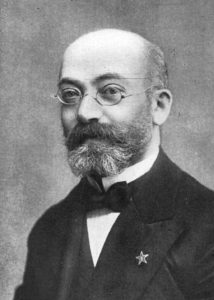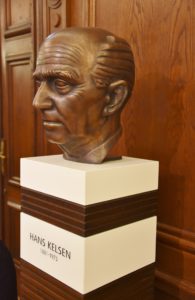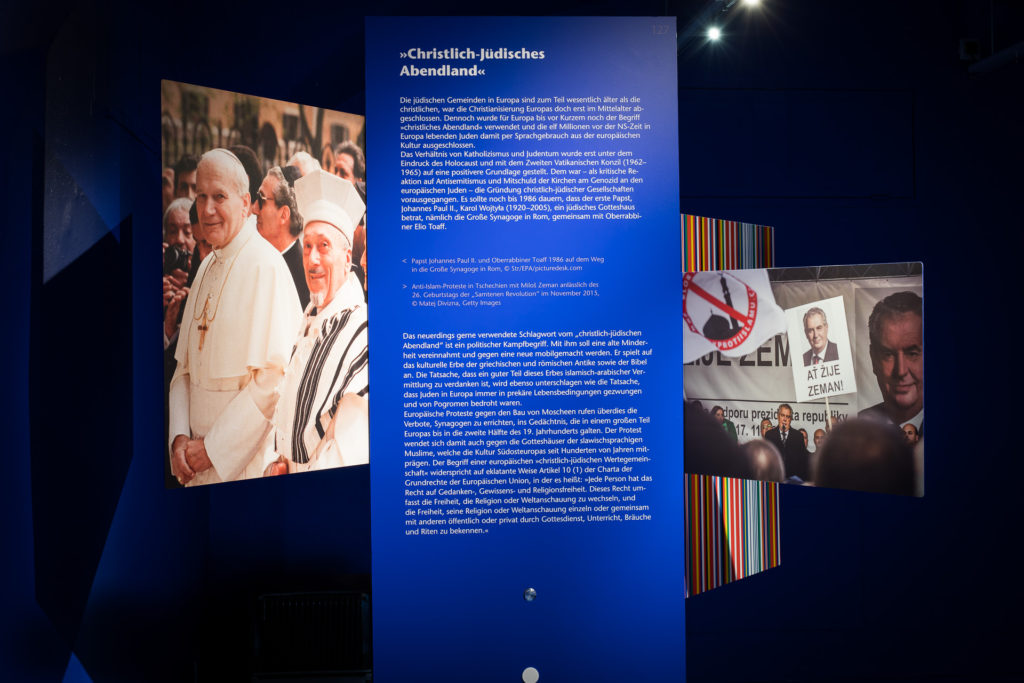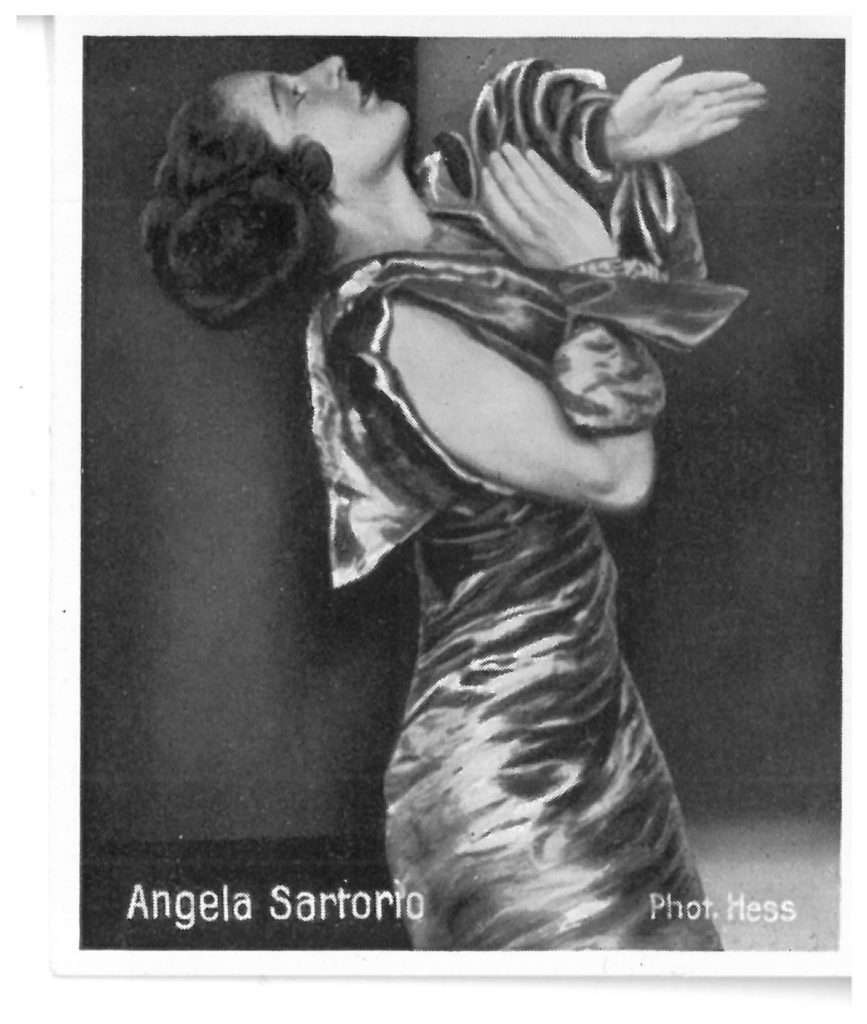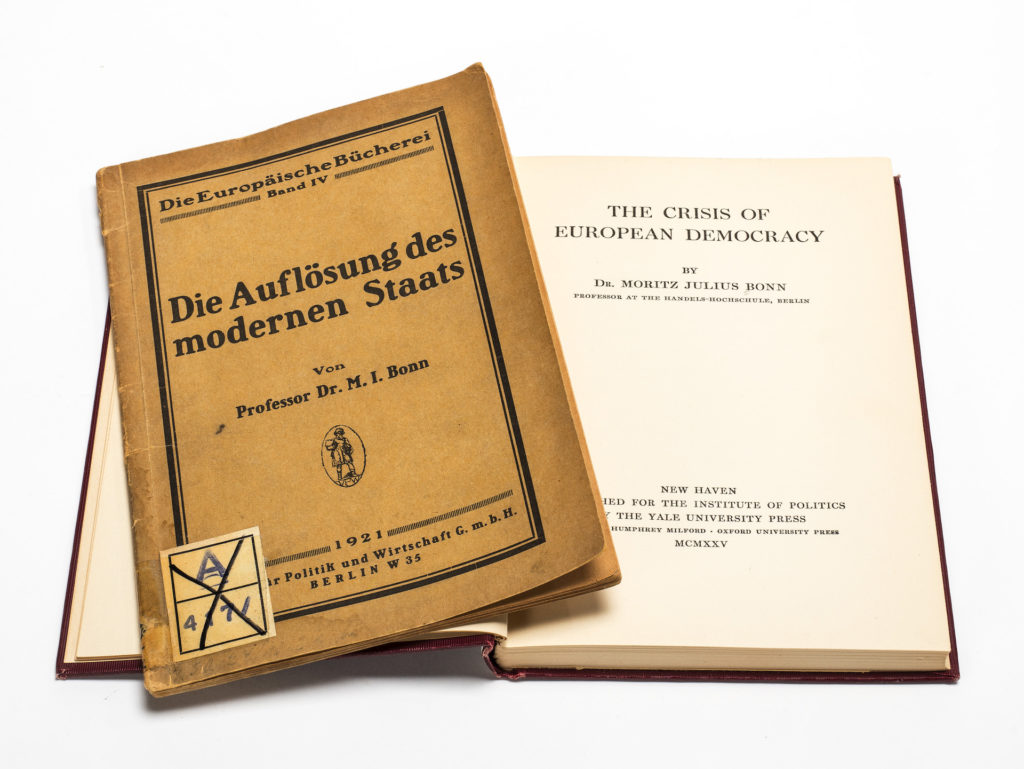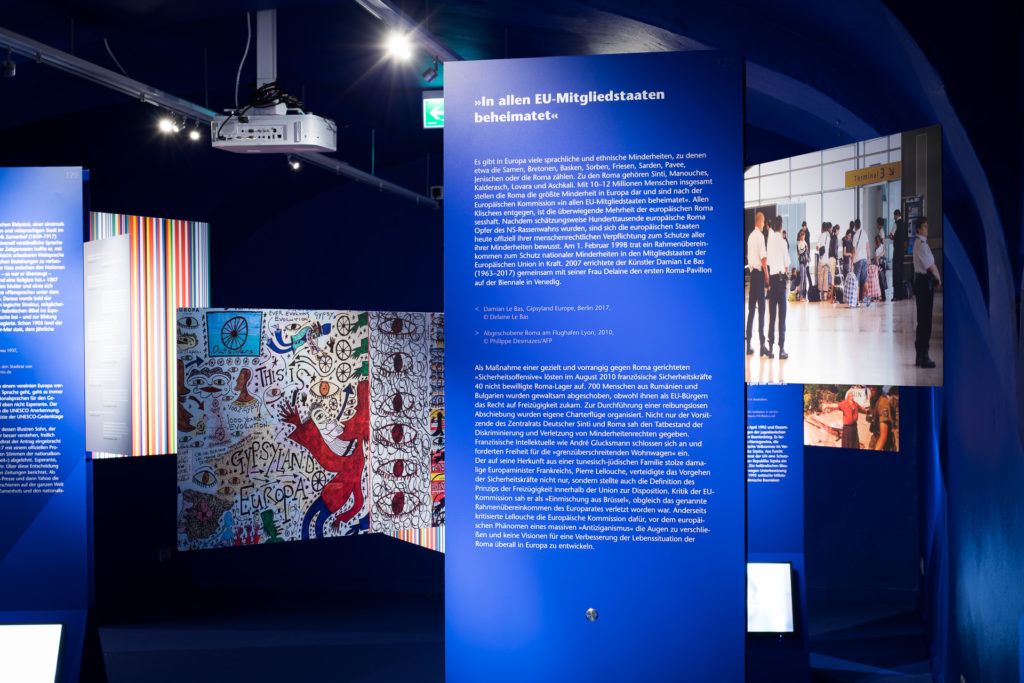European Diary, 15.4.2021: 107 years ago today, the former Viennese councillor Lucian Brunner died in Vienna. He was born in Hohenems on September 29, 1850, the son of Marco Brunner and Regina Brettauer. Lucian’s father, like most of his brothers and cousins, had left for Trieste in their youth to participate in the lively textile trade between St. Gallen and the Mediterranean, with which the Brunner family began its steep economic rise. Later Marco Brunner went to St. Gallen, where he represented the family’s business in Switzerland and soon also managed the “Bankhaus Jakob Brunner”, from which UBS was later to emerge.
In 1883, Lucian Brunner also joined his father’s private bank in St. Gallen as a partner. Soon after, in 1889, Lucian and his wife Malwine Mandel settled in Vienna, where he founded his own banking business but also became active as an industrialist and politician. He was active in a small liberal party, the “Vienna Democrats,” for which he was a member of the Vienna City Council from 1896 to 1901, as well as chairman of the “Democratic Central Association” and publisher of the associated newspaper “Volksstimme. In the Vienna Municipal Council he repeatedly opposed the anti-Semitic mayor Karl Lueger, where he contradicted the ever louder nationalist slogans. In the dispute over the Baden language ordinance, he took a moderating stance in the face of the surging hostility toward the Czechs. He took the view that the German lingua franca should be defended not with nationalist resentment but on the grounds of reason, without devaluing the language minorities in the Reich. “The representation of the city of Vienna (…) must keep in mind that it is not merely the center of a country inhabited by one nationality, but by many nationalities, and it should therefore be prevented that any other nationality of the Empire believes that this resolution contains a point, a hostility against it. (…) It has been customary in Austria for years that a policy of slogans is pursued, and one of the quickest of these slogans is the nationality dispute and the nationality quarrel. When a political party doesn’t know what to do, it starts to provoke nationality quarrels.” When representatives of the Czech minority in Vienna demanded a new school for themselves in October 1897, he also distanced himself from the national furor and called for pluralism to be allowed – referring to his own experiences as a member of the German minority in Trieste. Instead, he was insulted as a “Jew” in the local council. “It is precisely the coercion with which one wanted to force the peoples of Austria to become German that has damaged Germanism. (…) We want the right for our minorities, therefore we ourselves must nowhere suppress the right of a minority! Moreover, it does not befit the great German cultural nation to say that we are afraid of this Czech school in Favoriten. (…) I am a Jew, as you quite rightly say, and gentlemen, I am glad that I am one.”
He became a complete bogeyman of the Christian Socialists with his protest against a planned church building subsidy of the Christian Socialist majority. Lucian Brunner filed a lawsuit against this breach of the state’s religious neutrality, which was ultimately successful before the Supreme Court. He thus defended the constitutionally guaranteed separation of church and state – and now became a popular target of ongoing anti-Semitic attacks, in Vienna as well as in Vorarlberg. Lucian Brunner’s first wife, Malwine, died during these campaigns, which also affected the Brunner family personally.
Brunner always remained in close contact with his home community of Hohenems. For example, he donated considerable sums for the construction of the hospital and the gymnasium. On several occasions he also tried, in cooperation with Hohenems liberals and the Rosenthal family of factory owners, to realize tramway projects in Hohenems that would connect Hohenems with the Swiss railroad on the other side of the Rhine or even with Lustenau. A final tramway project, which in 1911 was to connect the Hohenems train station with the Rosenthal factory in the south of the market town, also failed to materialize, as the economic situation had in the meantime taken a heavy toll on the Rosenthal company. In Hohenems, too, the Christian Socialists were meanwhile agitating against the “Jew” Brunner-and against the Rosenthals, who would “cram” the school with Italian children.
Brunner remained a liberal throughout his life, even though at the end of his life he supported the Zionist movement in Vienna, probably out of disappointment with the political developments in Austria. When he died in Vienna on April 15, 1914, he left a legacy for an interdenominational school in his home community. The Hohenems municipal council did not accept the bequest. An interdenominational school was not desired.
Flashback, April 15, 2020: U.S. President Trump declares that the peak of the Corona pandemic has passed. And announces that the USA will stop its payments to the World Health Organization (WHO). German Development Minister Müller, on the other hand, declares that he will increase payments to the WHO: “The WHO must now be strengthened, not weakened. Cutting funding in the midst of a pandemic is absolutely the wrong way to go.”
Trump also decides that the “emergency checks” announced by the U.S. government to some 70 million needy people in the U.S. – to the tune of $1200 – should bear his name, in the midst of an election campaign that is about to begin. This has never happened before in American history.
Trump is threatening to send Parliament into forced recess on the grounds that he wants to fill vacancies without parliamentary participation. The possibility of ordering a parliamentary recess has also never been used by an American president. Trump plays on circulating conspiracy theories at a press conference, e.g. that the virus came from a Chinese lab.
EU Commission President van der Leyen, meanwhile, is calling for more commonality among EU members, saying, “A lack of coordination in lifting restrictions risks negative effects for all member states and would likely lead to an increase in tensions among member states. There is no ‘one-size-fits-all’ approach to the crisis, but member states should at least keep each other informed,” the EU authority in Brussels warns. Van der Leyen announces a recovery plan for Europe that will include a common fund.
On the Greek islands, 40,000 refugees continue to be held in camps under inhumane conditions. Today, 12 (in words TWELVE) children from Syria and Afghanistan will be flown out of Athens to Luxembourg. Luxembourg is thus the first of eleven countries to show willingness to take in a few unaccompanied or sick minors from the camps. In addition to Luxembourg, Germany, Switzerland, Belgium, Bulgaria, France, Croatia, Finland, Ireland, Portugal and Lithuania are participating in the rescue operation. On Saturday, 58 children are to follow to Germany. The Austrian government still refuses to help, although many mayors have now offered to take in new refugees.

